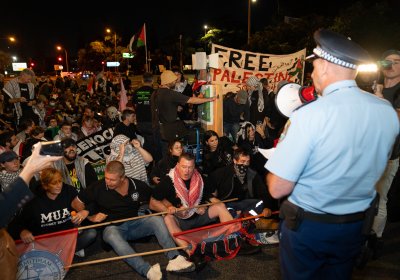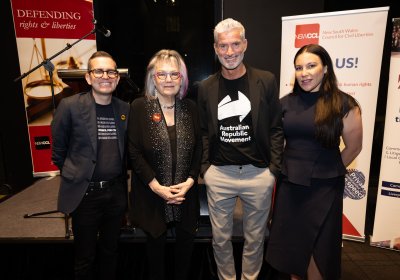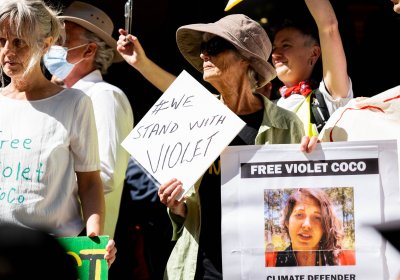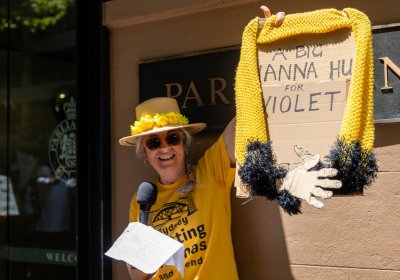Rising Tide said the People’s Blockade of the coal port in Muloobinba/Newcastle will go ahead, despite the Supreme Court ruling in favour of the NSW Police. Isaac Nellist reports.
NSW Council for Civil Liberties (NSWCCL)
Climate and civil rights activists protested outside the NSW Supreme Court against NSW Police’s attempt to block the Rising Tide People’s Blockade of the world’s largest coal port, reports Isaac Nellist.
Labor passed its draconian anti-Construction Forestry Maritime Employees Union bill through parliament on August 20, by six votes. Sue Bull and Pip Hinman report.
Palestinian activist Sara Shaweesh was arrested at Prime Minister Anthony Albanese’s electorate office after attempting to find out why her Gazan family’s visas had been denied. Rachel Evans reports.
Thirty-seven social and environmental organisations, together with the New South Wales Council for Civil Liberties, are calling on NSW Labor to repeal the undemocratic protest laws. Aneesa Bhamjee reports.
NSW Labor is pulling out all stops to intimidate Palestinian Australians and their supporters from protesting Israel’s horrific attack on the 2.3 million inhabitants of the Gaza Strip. Pip Hinman reports
The Civil Liberties Council affirmed its role of helping anyone who challenges the rich and powerful would continue at its 60th birthday. Rachel Evans reports.
Civil and legal rights groups say New South Wales Labor's amendments to the Anti-Discrimination Act are too broad and could harm other fundamental rights. Rachel Evans reports.
Judge Timothy Gartelmann released climate activist Violet CoCo, on bail, pending her appeal on March 2, 2023. Rachel Evans reports.
The NSW Premier said he is pleased Deanna “Violet” CoCo was jailed for her non-violent protest. Wendy Bacon writes that he is out of step with human rights and climate change groups.
In yet another blow to the right to protest, Labor’s NSW conference significantly watered-down a motion calling for the party to drop support for anti-protest laws. Josh Pallas reports.
The NSW Council for Civil Liberties is campaigning for NSW Labor Party delegates to commit to repealing the anti-democratic laws. Josh Pallas reports.
- Page 1
- Next page











